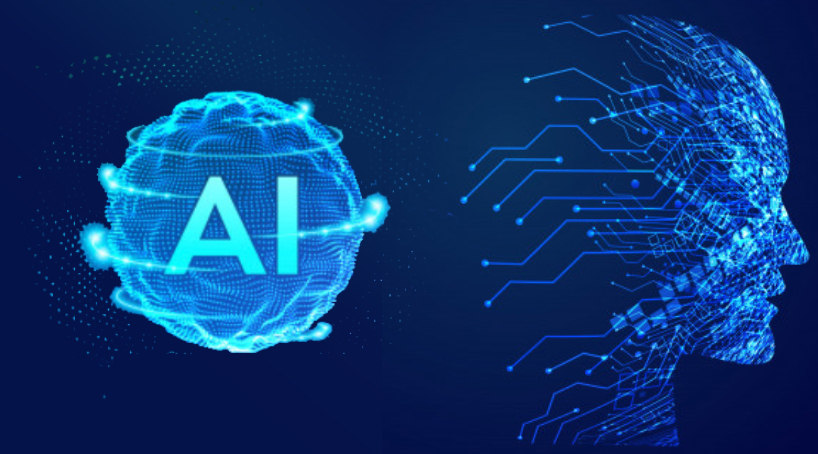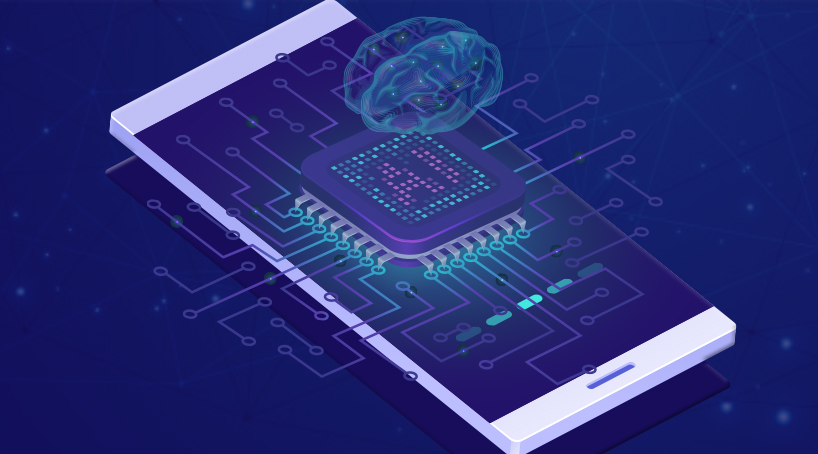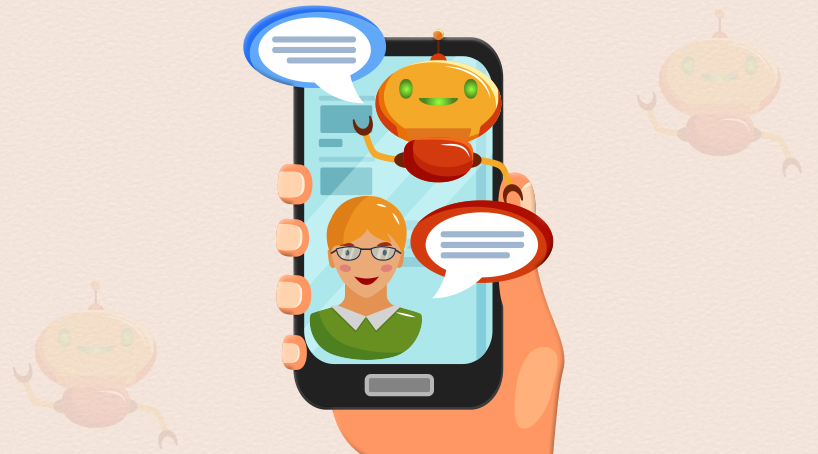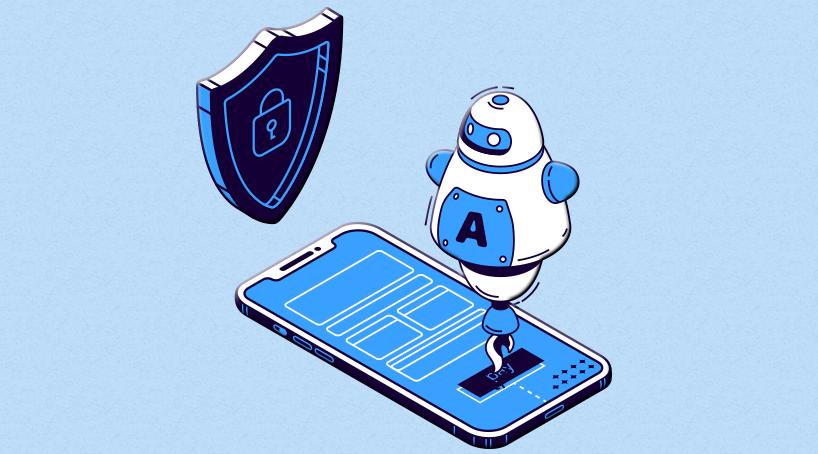- 7 min read
- Nov 21, 2020
- 0

In the past decade, due to the evolution of mobile apps, we have achieved notable transformation in every sector, particularly the way we approach business. The mobile app development has made tremendous changes in business, its strategies, growth, relations, goals, and expectations. Due to the advent of artificial intelligence (AI) in mobile app development able to perform amazing tasks that ease down the work that requires human intelligence such as problem-solving, reasoning, learning, situational analysis, etc. It helps us in barcode scanning, image labelling, landmark recognition, face detection, and text recognition. As per the data of a recent study, AI could contribute $15.7 trillion to the global economy by 2030.
Types of Artificial Intelligence (AI)
Reactive machines
As the name implies, they are ‘reactive’ machines that cannot use past experiences, only react to the present situations. For example, Deep Blue is a chess-playing supercomputer created by IBM in the mid-1980s that can analyze its own opponents by choosing the best strategies.
Limited memory
Unlike reactive machines, limited memory is an AI system that uses past experiences, information, events, and stored data to make a prediction. But the memory storage is limited and can’t be stored permanently. For example, self-driving cars or automated vehicles change the directions by detecting the environment and several external factors based upon observational and pre-programmed knowledge.
Theory of mind
This is future machineability and is a psychological term that means understanding other’s thoughts and emotions that could help in decision-making by machines that exhibit human-like capabilities.
Self-awareness
This type of AI is concerned about human-level consciousness which works based on self-consciousness and self-awareness that can recognize, replicate human-like actions, understanding emotional feelings, etc. It is the most advanced form of artificial intelligence that would come into existence in the future.

How Artificial Intelligence (AI) helps mobile apps?
Artificial Intelligence (AI) in mobile app development improves the user experience. A mobile app development company can incorporate AI technology based on the tasks considering the requirements of the customers. Let’s analyze how AI helps mobile app developers.
User’s behavioural patterns
One of the failures of mobile apps is the lack of user engagement. But implementing AI technologies in mobile app development enhances user engagement. This is done by integrating algorithms that can study user’s behavioural patterns and can make recommendations through analyzing what users are searching for, and how they are using their apps. This information helps the mobile developers to improve the customer experience by offering customized products/services.
AI optimize the search engine
The AI is integrated into a search engine that optimizes the searching process. The incorporation of artificial intelligence protects search engines from manipulation and improves their ranking algorithms. The top results in search engines aren’t necessarily high-quality content but AI separates the high-quality content from low content to provide the high ranking optimal lists. It is more intuitive and offers optimized search results, provides suggestions, spelling corrections, and voice recognition to personalize your smartphone for a better user experience.
AI helps in well-informed decision making
Artificial Intelligence has revolutionized the way we do business that it makes the best decisions in a humane way by analyzing large bits of data where humans can’t. They provide better suggestions to tackle the issues that help in the overall improvement of your business and cost-saving. They can handle data-based decision making to autonomous operations to provide critical insights, finding strategic opportunities, and to achieve the highest ROI.
Chatbots and digital assistants for customer service
Away from traditional customer service practices, AI helps the customer get answers to their queries with the help of chatbots and intelligent digital assistants. Thus the company can offer seamless customer service around the clock. For example, LivePerson and Bold360 are AI-powered chatbots that can interact with humans with the help of previous experiences. The AI-powered digital assistants assist in a wide range of tasks like controlling devices, setting alarms and reminders, answering questions, initiating phone calls or text messages, etc. Based on the task, the digital assistant accesses various services on the cloud such as up-to-date weather information, booking tickets, etc. Unlike chatbots, digital assistants have access to multiple sources comparing an ordinary chatbot. For example, digital assistants like Apple’s Siri and Microsoft’s Cortana can recognize your voice and personalize the phone providing a better user experience.

AI offers personalization
There are millions of apps in the online market and most of the apps are almost the same. Therefore, the personalization of mobile apps is not attained at the individual level that AI can help us with the personalization of mobile apps. For example, Flutter mobile apps have enhanced their user experience by customizing the apps according to each user by analyzing their behavioural patterns to make tailor-made recommendations for a better experience. Personalization helps in establishing a brand that delivers five to eight times the marketing ROI. The sales can thus be increased to more than 10% over companies that haven’t personalized.
Efficient data usage
Generally, advanced technologies like AI need a lot of data to function effectively. But, AI analyses various data, mobile app efficiency, behavioural patterns, upcoming trends, etc that it efficiently uses data. There it is best for certain industries, particularly the finance industry.
Customer-centric user experience
AI offers a customer-centric user experience. A mobile app can sense the location, but can’t change the user experience to a large extent. But when an AI-based algorithm is used along with location, several aspects are included that give an amazing user experience. Customer-centric messages and recommendations can be made.
AI ensures security
Considering the current cyber crimes and software errors, AI provides customer privacy, fast and secures the authentication process, and removes all the irregularities in the network. It has a wide range of recognition types to ensure user identification.

Implementation of Artificial Intelligence
Implementing artificial intelligence in mobile apps makes significant transformations. The mobile apps can be modified into intelligent applications that can do a wide range of tasks based on the necessities of the users to attract a large crowd of the target audience.
Before the implementation of AI, one must have knowledge of artificial intelligence and should be familiar with the techniques, applications, and organizations using AI technology. Do research on the subject; collect all possible resources to excel in your business niche. Then you must identify the problem and start exploring different ideas where you can add AI capabilities. Access and prioritize the potential business and financial value of all AI implementations and find the gap that you need to achieve in the scheduled time frame. Make a team having the best professionals along with the right technologies and tools to handcraft the best possible solution. Include AI as a part of the daily routine rather than some other alternative technologies that replace it. Design and develop the perfect app through the merging of customer’s requirements and the project goals.
Conclusion
Artificial Intelligence acts as a catalyst in enhancing mobile app development and user experience to offer a personalized experience. It can make revolutionary changes in all sectors that help you to achieve the desired goals. Nextbrain Technologies is a mobile app development company in Toronto, Canada offering customized mobile applications implemented with artificial intelligence to enhance user engagement and business growth.
